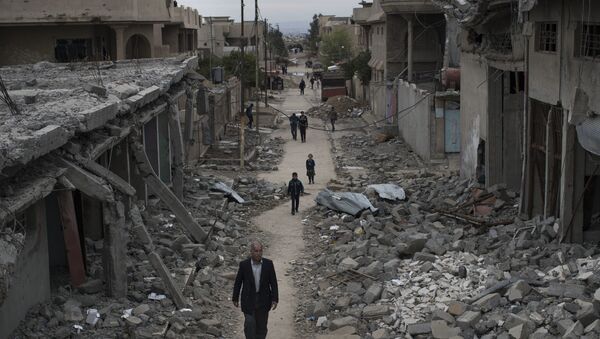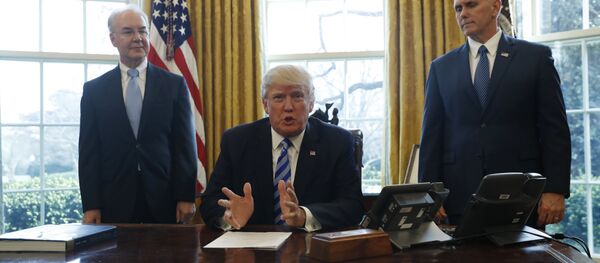WASHINGTON (Sputnik) — Last week, media reported that at least 200 people, many of whom were civilians, were killed in recent airstrikes in Mosul.
"My initial assessment is that we probably had a role in these casualties," Townsend told reporters when asked about the strike.
On March 17, an alleged US-led coalition airstrike targeting the militants and their equipment hit a building in al-Jadida neighborhood in western Mosul. The militants reportedly forced dozens of civilians into the structure and secured the building with explosives.
Townsend acknowledged the coalition targeted the particular area in Mosul, but noted it was still unclear if its strike was responsible for civilian deaths.
The commander also said US military personnel visited the site of the incident. The coalition has appointed Brig. Gen. Matthew Isler to lead the civilian casualty credibility assessment.
Townsend claimed the fact that the whole building collapsed after the strike contradicts US involvement.
"The munition that we used should not have collapsed an entire building," he stated. "My initial impression is the enemy had a hand in this. There is also a fair chance that our strike had some role in it."
Moreover, Townsend pointed out that accidental civilian casualties do not constitute a war crime.
"It is unfortunate, but it is not a crime, because these soldiers have to make these decisions in seconds sometimes, in circumstances that you cannot imagine unless you have experienced them," he added.
The spike in casualties during the operation in western Mosul was predictable, Townsend argued, because it is a much harder fight in closed urban terrain.
Townsend underscored that most civilians in Mosul are dying at the hands of the Islamic State, adding that the fight to liberate the city is the most significant urban combat since World War II.
Iraqi President Fuad Masum described in an interview to Sputnik earlier in March the situation in Mosul as a humanitarian catastrophe due to the civilian deaths, but urged to continue recapturing the city, since "it would not be sensible to leave the city to terrorists." He called for investigation into the mistakes made by US-led coalition airstrikes two weeks before to establish "whether there was a communication failure, whether the information was erroneous" and noted that the operation in that part of Mosul was postponed in order to find more appropriate methods to fight the militants.



